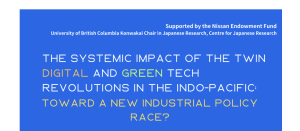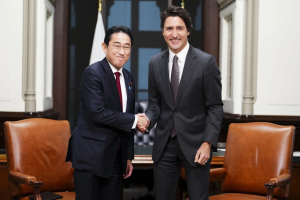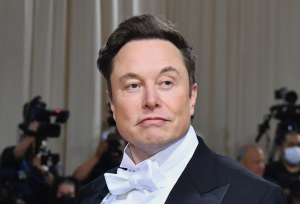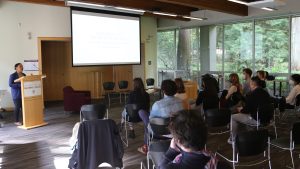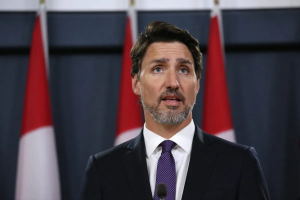Prof. Yves Tiberghien examines the systemic impact of digital and green technology revolutions in the Indio-Pacific
Professor Yves Tiberghien and colleagues explore how together the digital and green technology revolutions are driving future growth, transforming employment and societies, and reshaping the global economy in their new working paper. These transformations are reshuffling the liberal global order and changing power relations.
Prof. Yves Tiberghien explains how electric vehicles are reshaping Indo-Pacific economies and power dynamics
Professor Yves Tiberghien explains that emerging economies are taking advantage of their late-developer status to increase their economic investments into EVs, strategic subsidies and broader fiscal policies.
Prof. Gerald Baier says premiers lobbying the Bank of Canada on interest rate hikes is not necessarily negative
“Obviously, the Bank of Canada collects information, collects data that helps make its decisions,” says Prof. Baier. “But it’s not hurting anyone for them to write a letter that says, ‘Here’s what’s going on and here are the negative effects of of continued interest rate hikes.'”
UBC Political Science is looking to fill up to two Lecturer positions
The Department of Political Science is seeking to hire up to two full-time Lecturers, who will teach courses at the undergraduate level including Introduction to Politics, other lower-level survey courses, and courses in their field of specialization based on the teaching needs of the Department.
Prof. Max Cameron discusses the tumultuous state of democracy in Peru
Prof. Cameron specifically mentioned Alberto Fujimori, who he says “had sold some property and bought a tractor, and drove around in this tractor with a trailer behind it, called it the Fujimobile, drove around the shantytowns of Peru, gathering popular support.”
Canada gained “first-mover advantage” in Japan trade deal, says Prof. Yves Tiberghien
Prof. Yves Tiberghien was asked to comment on Japanese Prime Minister Kishida’s recent visit to Canada to discuss economic partnerships, clean energy, and the invasion of Ukraine.
Prof. Michael Byers calls for Elon Musk to step away from politics: “Is Mr. Musk oblivious?”
Elon Musk has made his controversial foreign politics opinions very clear, standing by them despite evidence and widespread criticism. Prof. Byers writes that the US government must step up to prevent further meddling from Musk in places like Ukraine and China.
Photos from our Graduate Research Conference
UBC Political Science would like to congratulate our Graduate Students, who put together a wonderful conference in May. We would particularly like to thank Conference Chair Katelynn Kowalchuk and Keynote Speaker UBC Professor Genevieve Bates.
Is Canada’s Gazprom maneuver a sign of war fatigue? Visiting Prof. Swaran Singh writes on Canada’s difficult decision
“At the very least, this concession to Gazprom brings Canada back into the global spotlight,” writes Prof. Singh. Canada’s choice to continue with use of Russian turbines has been controversial, and considering the length of the Ukraine-Russia war, may be a sign of crisis fatigue.
Prof. Xiaojun Li’s new book Fragmenting Globalization
In their new book Fragmenting Globalization: The Politics of Preferential Trade Liberalization in China and the United States, Profs. Xiaojun Li and Ka Zeng shed light on the influence of global supply chain integration on domestic and international trade policy, as well as support for preferential trade liberalization.
